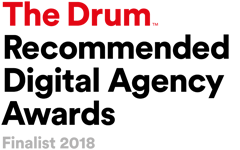Need help with understanding your websites security and how to maintain your website? Here are some of the top FAQs that we receive.
The top technical FAQs and need-to-knows about website security and website maintenance
Yes! Don’t join unknown/random public wifi’s, click links you don’t know or enter your details onto sites that aren’t secure (so, check if the site has http:// or https://). The s stands for secure. Here’s a full article on what website hacking does.
Here are the main ways to protect your website from a hack
1. Anti malware software plugins from a trusted and updated company
2. updating all software and plugins
3. Don’t use links or embeds of other websites/companies you don’t trust
4. Hire a cyber professional or consultant
5. Make sure your server or the company server you use is safe, updated and credited
Yes! Don’t join unknown/random public wifi’s, click links you don’t know or enter your details onto sites that aren’t secure (so, check if the site has http:// or https://). The s stands for secure. Here’s a full article on what website hacking does.
In short – yes. However it’s not typical that just viewing alone could give you problems with hacking. However if the site is unprotected, outdated, or if you’re accessing with an older phone or unsupported phones – it’s possible viewing alone can get your device hacked.
We recommend that you search vulnerability scanners and plugins / malware scanners (there are loads available to help). If you’re worried your WordPress website has been hacked and you need help with fixing, protecting and preventing this in the future, get in touch with us.
**SHORT ANSWER HERE / PRINCIPLE LIKE ‘First, they scan, then they find an opportunity like x y or z, then they infect/penetrate that software/hardware (such as a website) and then they access and can download data associated**. Here’s a complete answer on the types of hacking and preventative measures you can take. We also offer website hosting and monthly maintenance packages to prevent your website being hacked.
If you go onto the wrong website and if you enter information into bad websites, yes your data can be shared with hackers.
Yes, in the same way that your iPhone/android and laptop/PC can be hacked, your iPad can be hacked by websites too.
Someone who has coded malicious malware to attack in a general area, certain systems or certain companies/individuals to websites.
Yes, but only in 3 ways.
1. If your email provider has been hacked such as google and sensitive information is leaked such as passwords (always change your password and keep it as complicated as possible – the length of it is important)
2. You have been attacked previously and have malware stealing information
3. You are on a fake website of your email provider (without realising) and you enter sensitive data
After an attack, you should take these steps, in this order:
1. Prevent future attacks (update software, make sure your hardware is supported, back-up your data)
2. Scan for malware with ideally multiple malware scanner providers 2 or 3 is a good number but 1 is better than none to source out threats
3. Clear-up data (to prevent further damage from hidden files, delete files you don’t need or use and look up files that don’t look right but you aren’t sure will affect your system)
4. Change passwords to all software used on websites such as plugins
Prevent your website from being hacked by taking out a maintenance package with a professional.
Technically, yes. But if your WiFi provider is a reputable company, then it’s nearly impossible without certain information given to the attackers (i.e. if it’s basically an inside job) or if the hacker is very close in proximity.
We recommend you search for anti-malware or malware scanners. However if it’s your own WordPress website that’s been hacked and you need support, you can buy one of our WordPress monthly maintenance packages.
Search for ‘malware scanners’ – this should provide plenty for you to choose from.
Lock sftp/ftp (safe/file transfer protocol) from the server, and stop the DNS (domain name system) hosting. You may need to contact the hosting company. If you have a WordPress site and want support with and future prevention, you can take out one of our monthly website security packages.
You can use anti-malware software, password changes, updates, supported systems and software to protect against hacking. Alternatively if you have a WordPress website and want to ensure the right steps are taken at the right time for you, take out our monthly maintenance packages.
1. Shut the hack down: Lock sftp/ftp (safe/file transfer protocol) from the server, and stop the DNS (domain name system) hosting.
2. Prevent: if you have a WordPress site, take out a monthly package to prevent this happening.
Install plugins that help with that, search WordPress malware plugins. We recommend plugins like WordFence. If you want support and prevention, take out one of our monthly packages.
An un-welcomed, unsolicited pop-up is what happens when your website is not secure. Prevent this happening and secure your website as explained above.
Prevent pop ups and data being stolen/accessed by keeping your website secure at all times (i.e. have SSL certificates which will show as https:// (rather than http://) in your URL. Are your SSL certificates activated?
Search for anti-malware and malware scanners. If you have a WordPress website and you want help and for this to all be prevented in the future, take out our monthly package.
1. Shut the hack down: Lock sftp/ftp (safe/file transfer protocol) from the server, and stop the DNS (domain name system) hosting.
2. Prevent: if you have a WordPress site, take out a monthly package to prevent this happening.
3. Potentially reset your website.
We use preventative plugins such as WordFence.
Protecting against viruses is crucial, especially as hackers become increasingly sophisticated! We offer monthly packages to our clients to prevent viruses happening.
Scan for anti-malware software. Find the software via searching in a search engine or in WordPress plugins for ‘anti-malware’ or ‘malware scanner’.
There are 3 types.
1. Protocal
2. Volume and numbers
3. Application attacks
1) Designed to take up as much resources as possible for all the protocals (protocals are data locations and transfers via files that are followed by all computers so locations are known
2) Volume is the same as protocal but instead of focusing on protocals directly it targets the server load by attacking with multiple pings (server queries) or/and multiple users searching at the same time with infected computers or on purpose that the server cant handle
3) Rare but it attacks the data of the application directly and manipulates it to do what the attacks want such as shutting down, slowing load times, or loading the application with a tonne of unwanted data
Yes, it blocks users who spam pings or slows down their loading speed if they are spamming refresh/using multiple windows (though this is more a limitation on their hardware).
Firewalls, high server load ( being able to handle large volumes of data such as an influx of customers), malware scans, latest hardware and software, backup data, have backup servers, use multiple servers, maintain strong network infrastructure, have a response team or a cyber professional consider DoSaaS (denial of service as a service) apps.
Denial of service attacks slow down users connection to the server, higher loading times, more frustrated customers, non-responsive websites for users.
Yes – absolutely it’s illegal!
Firewalls, high server load ( being able to handle large volumes of data such as an influx of customers), malware scans, latest hardware and software, backup data, have backup servers, use multiple servers, maintain strong network infrastructure, have a response team or a cyber professional consider DoSaaS (Denial of Service as a service) apps. If its happening now, consider getting more server load although DoS attacks usually fizzle out quickly as real users go off for a bit and it reduces server load and the attackers get blocked doing the same
Prevent ^ if it’s happened then restore computer to older version and update, wipe your computer (hopefully its backed up) ask a professional to handle it or buy a new HDD/SSD
No
It prevents security issues. You can find them online by searching for plugins and website scanners.
Use a server provider who has them or buy a certificate directly and activate it on your website.
Website security certificates (SSL) guarantees users they have an encrypted connection from them to the server so their information is as secure as can be by a security authority.
It’s an encrypted communication between user and server, also it has frequent anti-malware scans.
Websites can be self-managed, but you should be highly cautious with this route. Alternatively, we have security services in the form of monthly maintenance packages available here.
Yes, it definitely is. If you value the money you’ve spent making your website, and if you value your customer and personal information and security then yes, your website must be secure.









